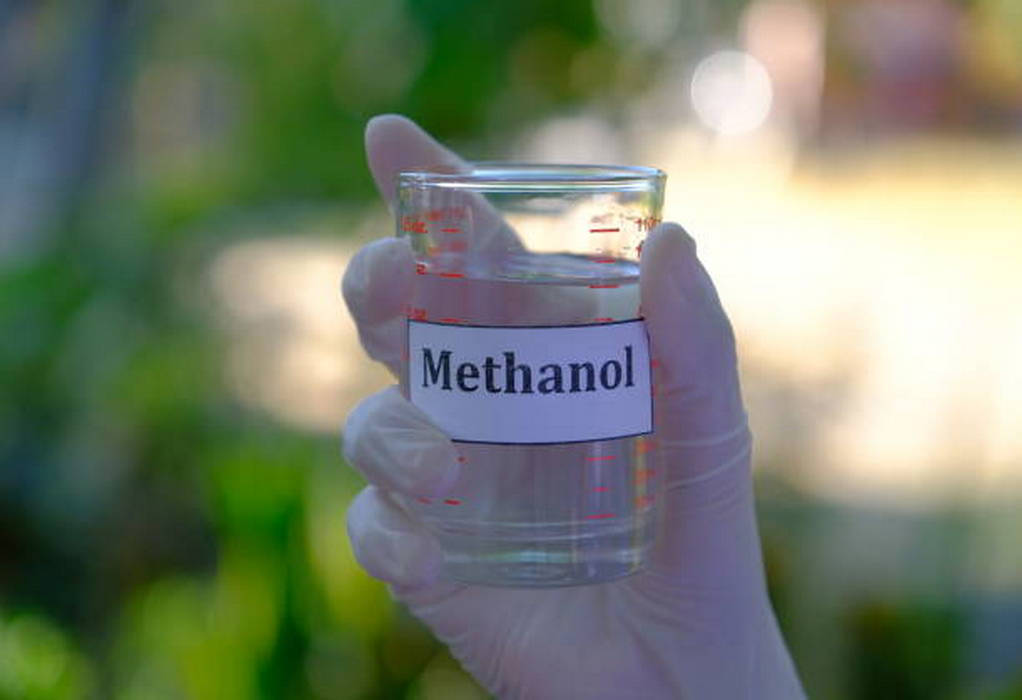The first biomethanol container ship built by a Chinese company is set to depart from Shanghai for Rotterdam in the second quarter, as the industry moves toward cleaner fuels following a new European Union rule requiring large shippers submit emission certificates.
Built by Shanghai Waigaoqiao Shipbuilding, the 16,100-tonne Eco Maestro is the first of 14 vessels ordered by Singaporean container shipping group X-Press Feeders to make its maiden journey.
The EU’s emissions trading system (ETS) now covers carbon dioxide emissions from ships over 5,000 tonnes entering its ports. Shippers must submit their first ETS certificates by October 2025 for emissions generated from Jan. 1 this year. This EU rule has motivated industry and governments to invest in alternative fuels, with Asia becoming a building hub for ships powered by green methanol or ammonia.
Methanol and biomethanol are simpler to treat than ammonia and hydrogen in storage, and during bunkering and refueling. Methanol is produced from various sources including natural gas, coal, biomass and renewable electricity. The green or renewable version, also called biomethanol, is sourced from organic matter, such as food and livestock waste, during decomposition. Like biomethanol, e-methanol, which is sourced from solar or wind energy, is a green maritime fuel.
X-Press Feeders’ new ships will serve Scandinavian countries and the Baltic states from their base in Rotterdam. In Asia-Europe shipping, large vessels typically travel the intercontinental leg to Rotterdam, where their loads are split for transport by smaller ships to their destinations.
X-Press Feeders’ dual-fuel ships can switch between diesel and green methanol and even run on a blend of both. This is key because while Rotterdam has a green methanol supply and bunkering infrastructure, ports along the Shanghai-Rotterdam leg still lack that capability, which means engines need to run on diesel for that part of the journey.
Refueling will take place in Singapore, the world’s largest bunkering hub. Singapore has been a driving force in the rollout of alternative maritime fuel shipping. Apart from Rotterdam, it is also working with Norway and the California ports of Los Angeles and Long Beach to create green shipping corridors.
Denmark’s A.P. Moller-Maersk in October began sailing the world’s first container ship powered by green methanol. The vessel was built by South Korea’s Hyundai Mipo Dockyard.
The second-largest container shipping company globally has ordered 25 such vessels and plans to launch them in Asia, also in the second quarter, to ply routes between Europe and North America. Maersk and Mitsubishi Gas Chemical are building Japan’s first green methanol supply base at Yokohama.
U.S.-based consultancy firm Oliver Wyman expects over 200 biomethanol-powered vessels to be operational within the next decade, in addition to the current 30. But the supply of alternative fuels remains limited, with only about 2 million tonnes yearly of green methanol, ammonia and hydrogen available, representing less than 1% of global demand.
Large bunker associations have begun offering methanol together with heavy oil or diesel oil so buyers can compare prices, a move that Juergen Sorgenfrei, a maritime business expert and professor at Hamburg-based NBS Northern Business School, described as “one of the biggest recent advances” in green methanol adoption.
Tags: Biomethanol, Emissions, ETS, Sail



Recent Posts
Japan Launches Major R&D Project to Advance Shipbuilding with Alternative Fuels
EU Adopts Emissions Standards for Low Carbon Hydrogen to Bolster Clean Energy Market
Trafigura to Implement ZeroNorth’s AI Platform Across Global Fleet
Cochin Shipyard to Construct eCap Marine’s Hydrogen-Fuelled SeaShuttles for Samskip
India Strengthens Hydrogen Economy with Hyundai-IIT Madras Innovation Centre
India Showcases Green Maritime Ambitions at London Investment Meet
Hong Kong Launches Incentive Scheme to Promote Green Maritime Fuel Bunkering
MSC Hosts Sustainability Experience in Antwerp for Global Supply Chain Leaders